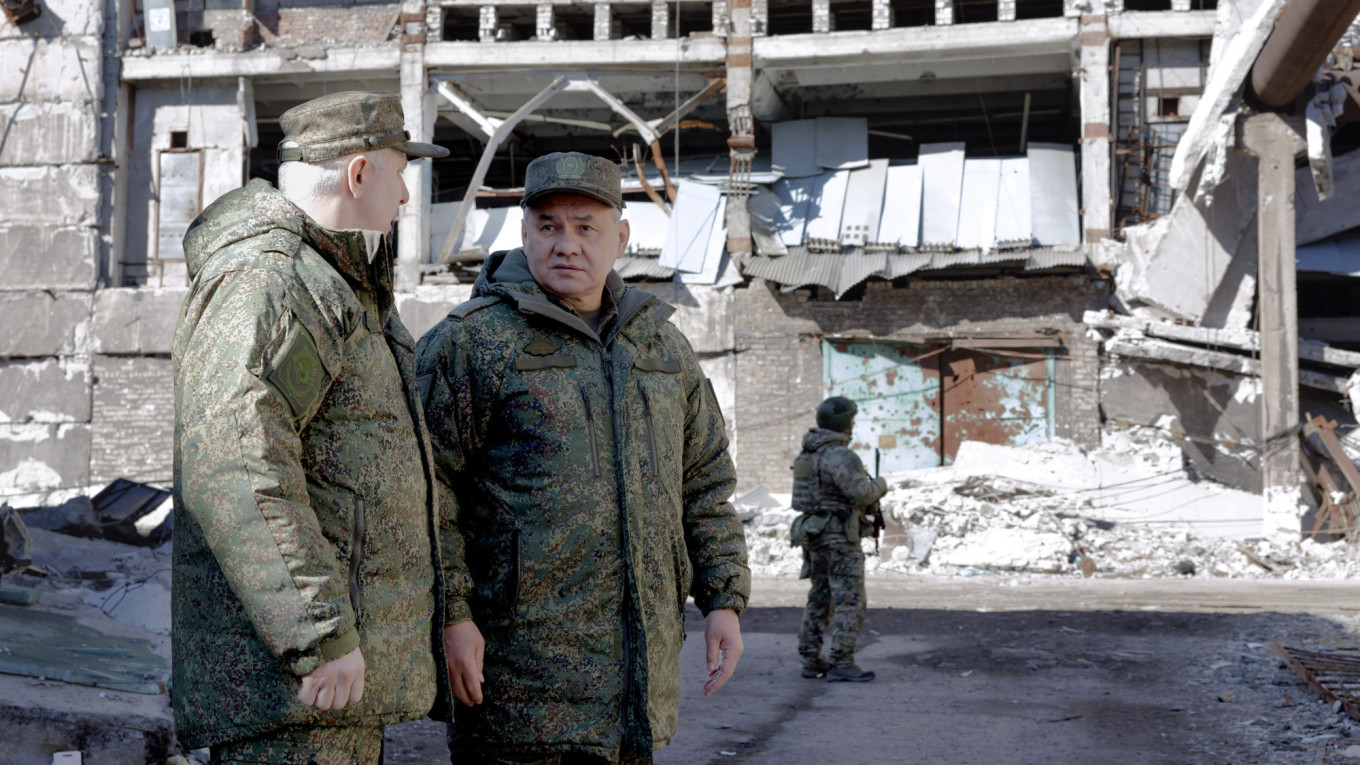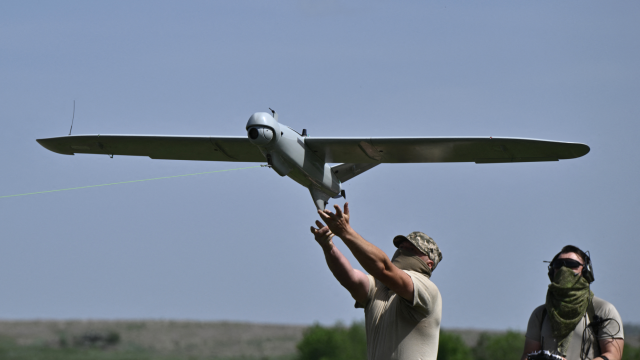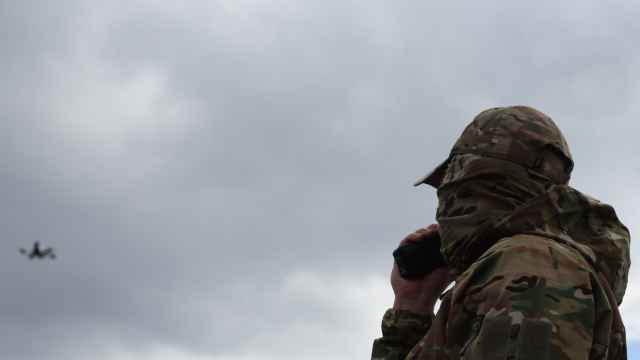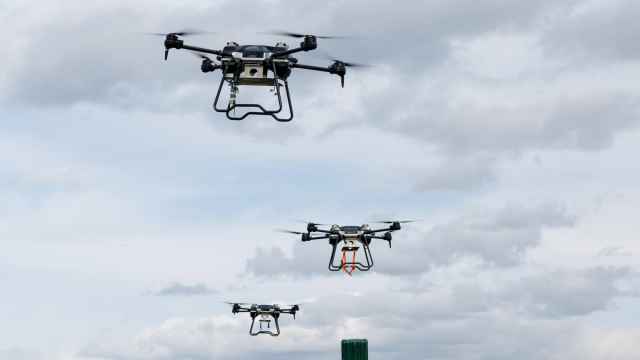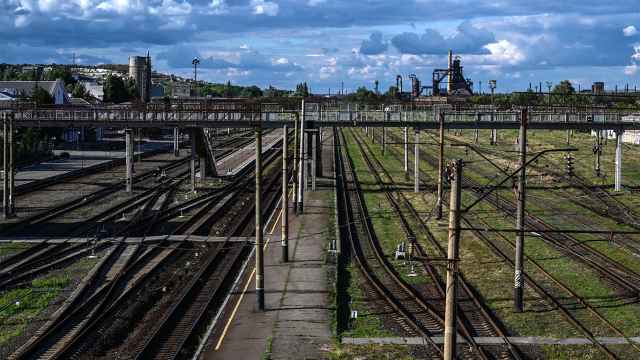Russia's defense minister has inspected the front line in eastern Ukraine, the Defense Ministry said Saturday, with the battle for Bakhmut raging and the U.S. offering to pump more money into Kyiv's survival.
Sergei Shoigu had "inspected a command post on the front" in the direction of the southern Donetsk region, the Defense Ministry said, without specifying exactly where or when.
It put out a video of Shoigu traveling in a helicopter and talking to a soldier in front of damaged buildings.
Russia is determined to seize the now-destroyed city once known for sparkling wine as part of the wider aim of capturing the entire Donetsk region.
Ukraine has pledged to defend "fortress Bakhmut" for as long as possible, but this week officials warned the situation was difficult.
Both sides have reported heavy casualties in the struggle over the city, whose symbolic importance outstrips any military significance.
The head of Russia's Wagner mercenary group said Friday his forces had "practically encircled" Bakhmut, which has seen some of the fiercest fighting of the conflict.
Yevgeny Prigozhin said in a video released on Telegram "only one road remains" to be captured.
The 61-year-old has reported that his fighters have seized three villages north of Bakhmut — Yagidne, Berkhivka and Paraskoviivka — in recent weeks.
In Washington, President Joe Biden on Friday hosted German Chancellor Olaf Scholz in a show of unity against Russia.
The United States responded to Moscow's warning against further arming Ukraine by offering another $400 million in security assistance.
'As long as necessary'
Western military aid has been key to Kyiv's ability to hold out and to even regain ground, but the Kremlin said such assistance will only "prolong the conflict and have sad consequences for the Ukrainian people."
Arms deliveries "place a significant burden on the economies of these countries and negatively affect the well-being of citizens of these countries, including Germany," Kremlin spokesman Dmitry Peskov said.
Washington ignored that warning, announced the new security package featuring ammunition — including for the Himars precision rocket system that Ukrainian forces have used to devastating effect against Russian troops and supply dumps.
In a display of partnership after friction over supplying tanks to Ukraine, Biden welcomed Scholz to the White House for his first trip to Washington since the start of Russia's military offensive.
When they last met "Russia was amassing its troops" on the border, Biden said in brief remarks to the press, adding the West had vowed to respond and "together we made good on that promise."
In reply, Scholz said it was important to send a message to Ukraine that "we will continue to (support it) as long as it takes and as long as it necessary."
Despite the absence of a joint press conference, Scholz said the bilateral relationship was "in a very good shape."
In another show of support for Ukraine, US Attorney General Merrick Garland made a surprise visit to the country on Friday.
'Measures' at border
Ukrainian troops have held out for months in Bakhmut, fighting brutal trench warfare and artillery battles that have flattened large portions of the city, and President Volodymyr Zelensky this week said the fighting was "only increasing."
His comments followed an assessment from the commander of Ukraine's ground forces Oleksandr Syrskyi that it was "extremely tense" in the city.
While the hotspot of the fighting is in the east of Ukraine, Russia said this week that a group of Ukrainian combatants had crossed into the southern Bryansk region.
Kyiv dismissed the claims as a "deliberate provocation."
Moscow says its regions bordering Ukraine are routinely shelled by Ukrainian forces, but the reported incursion was a rare instance of fighting inside Russia.
The Kremlin said it would take steps to prevent cross-border incursions which killed two.
A Message from The Moscow Times:
Dear readers,
We are facing unprecedented challenges. Russia's Prosecutor General's Office has designated The Moscow Times as an "undesirable" organization, criminalizing our work and putting our staff at risk of prosecution. This follows our earlier unjust labeling as a "foreign agent."
These actions are direct attempts to silence independent journalism in Russia. The authorities claim our work "discredits the decisions of the Russian leadership." We see things differently: we strive to provide accurate, unbiased reporting on Russia.
We, the journalists of The Moscow Times, refuse to be silenced. But to continue our work, we need your help.
Your support, no matter how small, makes a world of difference. If you can, please support us monthly starting from just $2. It's quick to set up, and every contribution makes a significant impact.
By supporting The Moscow Times, you're defending open, independent journalism in the face of repression. Thank you for standing with us.
Remind me later.


